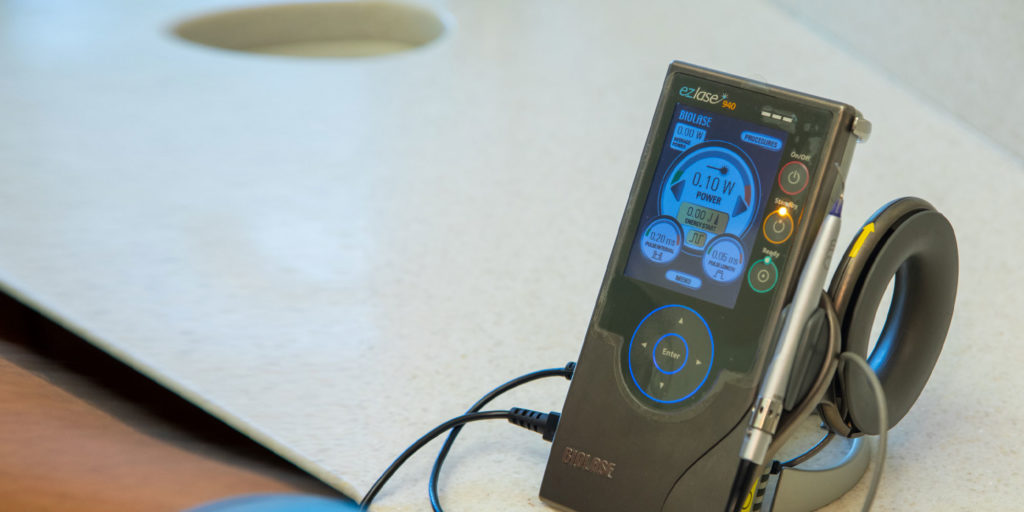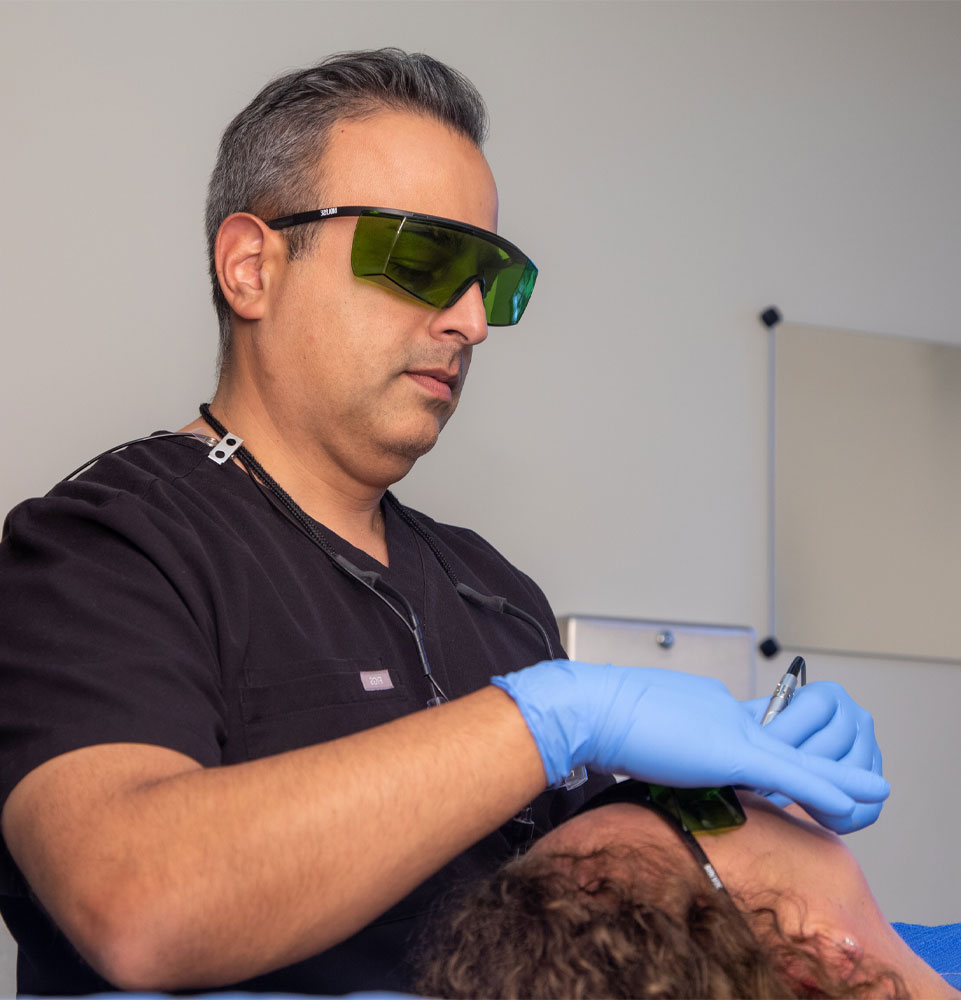


If you have periodontal (gum) disease, you’re probably used to having your periodontist do deep cleanings of your gums. This involves scaling and root planing around the roots of your teeth. However, with more advanced periodontal disease, you may need surgery in order to get the cleaning you need. Thankfully, we offer laser gum surgery in Mission Viejo, CA, and are here to answer your questions about the procedure.
Thankfully, we offer laser gum surgery in Mission Viejo, CA, and are here to answer your questions about the procedure.

In traditional periodontal surgery, your periodontist makes small incisions into your gums in order to clean the areas of the tooth root that are normally covered. This can be a lengthy and painful process, often involving stitches and an extended recovery period.
Laser gum surgery bypasses the worst parts of periodontal surgery. By using a laser for periodontal therapy, our periodontal team can gain access to the area under your gums with less post-operative pain and a faster recovery time. In laser gum surgery, we use a Biolase® laser to make small cuts into your gums. This allows us more precision as we work, and reduces your risk of swelling and infection.
Laser gum surgery represents a major improvement over traditional periodontal surgery. These benefits include:
Most of our patients are able to manage their post-surgical pain with pain relievers, such as Advil or Extra Strength Tylenol
Because laser gum surgery uses smaller incisions than surgery with a scalpel, there is considerably less bleeding
Most of our patients can return to their daily routine later the same day

We find that most of our patients with severe periodontal disease are good candidates for laser periodontal therapy! If you have gum disease and any of the following risk factors apply to you, you may qualify for laser gum surgery:
We’re glad to discuss this option with all our patients who qualify, so don’t hesitate to ask us about gum surgery!
I understand the information disclosed in this form may be subject to re-disclosure and may no longer be protected by HIPAA privacy regulations and the HITECH Act.